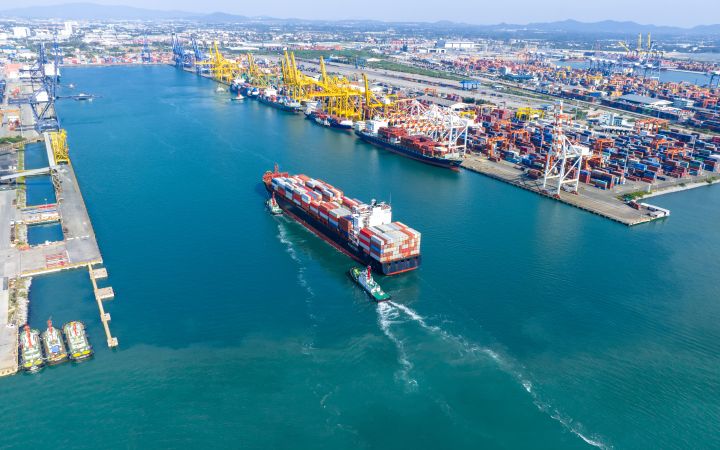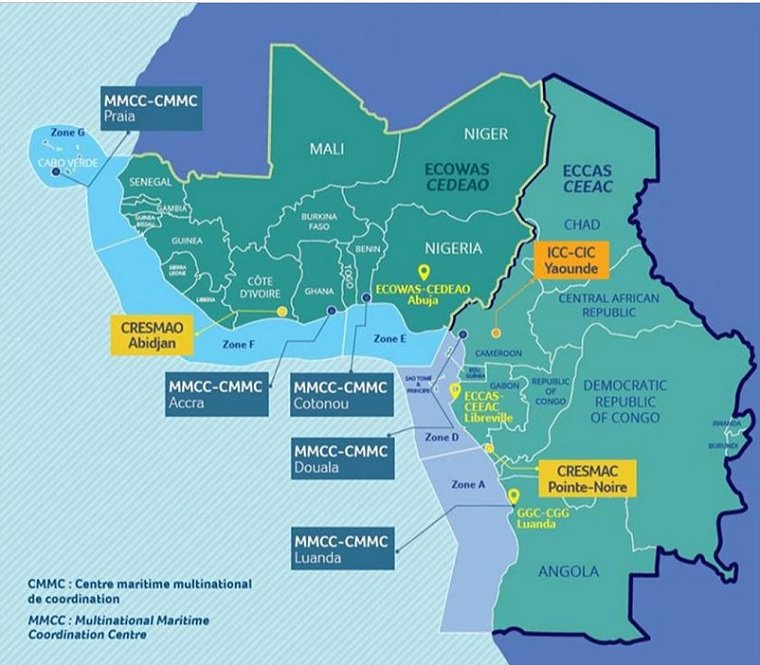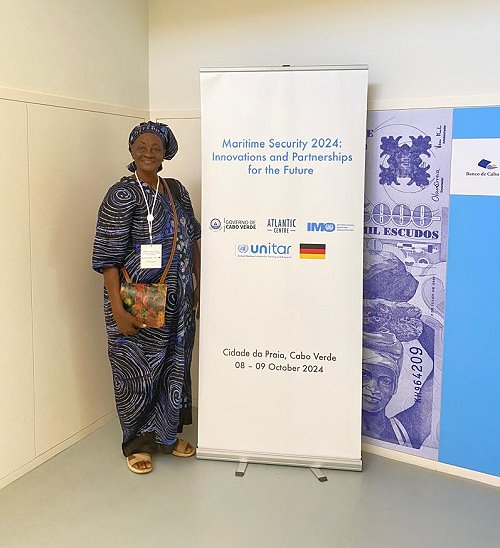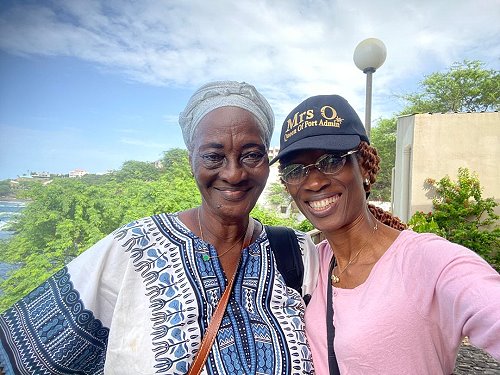 The 'Maritime Security 2024: Innovations and Partnerships for the Future' was a 2-day meeting from 8-9 October, 2024, hosted by the Government of Cape Verde in the capital Praia as part of a wider process of exchange of experiences under the Yaoundé Architecture of cooperation. Over the years, the format put more and more emphasis on seeking innovative responses to what was few years ago a hot spot of piracy and maritime insecurity. It is driven by the G7++Friends of the Gulf of Guinea (FoGG).
The 'Maritime Security 2024: Innovations and Partnerships for the Future' was a 2-day meeting from 8-9 October, 2024, hosted by the Government of Cape Verde in the capital Praia as part of a wider process of exchange of experiences under the Yaoundé Architecture of cooperation. Over the years, the format put more and more emphasis on seeking innovative responses to what was few years ago a hot spot of piracy and maritime insecurity. It is driven by the G7++Friends of the Gulf of Guinea (FoGG).
Background: In 2020, according to the International Maritime Bureau, the Gulf of Guinea saw 84 attacks on ships, with 135 seafarers kidnaped for ransom. The Gulf of Guinea experienced a nearly 50 % increase in kidnapping for ransom between 2018 and 2019, and around 10 % increase between 2019 and 2020. The region accounted for just over 95 % of all kidnappings for ransom at sea.
Participants from across the globe got down immediately to connect during the informal Networking Reception held at Hotel Pestana Tropica, Praia, Cape Verde on the evening preceding the meeting proper. It was the third of such meetings on maritime security in the Gulf of Guinea and West Africa that Mundus maris was invited to making substantive presentations. The first in the series was in December 2022 in Abidjan, Côte d’Ivoire, the next one was convened a year later in Dakar, Senegal.

Our intervention on the second day in Cape Verde was titled ‘Coastal Communities and Environmental Protection’. It was well received, like the ones in earlier occasions.
 Starting with a brief reference to the broader picture of global principles Mundus maris representative, Prof. Stella Williams, Nigeria, showed a whistle stop tour through some activities of the organisation in the sub-region. As in previous occasions she emphasised the importance of investing in social and economic opportunities particularly of women and youths so that they would have a good future ahead and not be prone to fall in the hands of unscrupulous gangs. She underscored the need for ocean literacy and operationalising the Small-Scale Fisheries (SSF) Guidelines as elements of a people-centered approach. The bottom-up investment in capacity strengthening of coastal communities by Mundus maris and other civil society organisations was complementary to the responsability of governments to step up enforcement of existing legislation and international agreements and investing in social services, like education and health to underpin economic development. The slides are available here.
Starting with a brief reference to the broader picture of global principles Mundus maris representative, Prof. Stella Williams, Nigeria, showed a whistle stop tour through some activities of the organisation in the sub-region. As in previous occasions she emphasised the importance of investing in social and economic opportunities particularly of women and youths so that they would have a good future ahead and not be prone to fall in the hands of unscrupulous gangs. She underscored the need for ocean literacy and operationalising the Small-Scale Fisheries (SSF) Guidelines as elements of a people-centered approach. The bottom-up investment in capacity strengthening of coastal communities by Mundus maris and other civil society organisations was complementary to the responsability of governments to step up enforcement of existing legislation and international agreements and investing in social services, like education and health to underpin economic development. The slides are available here.
The other invited NGO was the Canoe and Fishing Gear Owners Association of Ghana represented by Nana Kweigyah. whose intervention was titled: ‘Enhancing Coastal Community Partnerships’. He presented factual information of what they do to alleviate the strain on the artisanal fleet badly suffering from resource scarcity as a result of legal and illegal industrial fishing in areas normally reserved for SSF.
 Both NGOs made a great impression on the more than 140 participants and hence, our participation as the only two (2) NGOs among those working with Coastal Fishing Communities impressed on the Maritime Security Teams the need to partner with civil society organisations and coastal communities directly in order to advance the safety and human security of the maritime space within their command.
Both NGOs made a great impression on the more than 140 participants and hence, our participation as the only two (2) NGOs among those working with Coastal Fishing Communities impressed on the Maritime Security Teams the need to partner with civil society organisations and coastal communities directly in order to advance the safety and human security of the maritime space within their command.
The gathering was financially supported by the European Commission through the Atlantic Centre, International Maritime Organization (IMO), UNITAR and the German Government. The IMO kindly covered travel costs to the meeting of the two civil society organisations from Nigeria and Ghana respectively. The German Government paid for the rest of expenditures for many invitees to the meeting.








